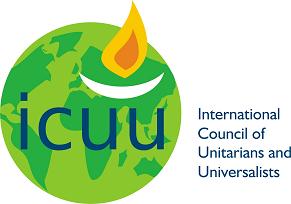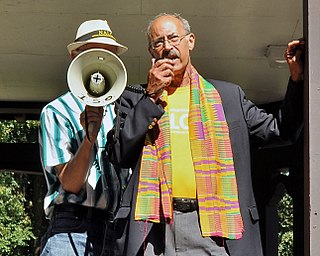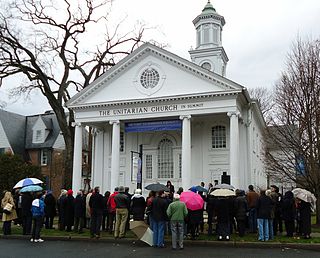Related Research Articles

The Canadian Unitarian Council (CUC) is a liberal religious association of Unitarian, Universalist, and Unitarian Universalist congregations in Canada. It was formed on May 14, 1961, initially to be the national organization for Canadians belonging to the Unitarian Universalist Association (UUA) which formed a day later on May 15, 1961. Between 1961 and 2002, almost all member congregations of the CUC were also members of the UUA and most services to congregations in Canada were provided by the UUA. However, in 2002, the CUC formally became a separate entity from the UUA, although the UUA continues to provide ministerial settlement services and remains the primary source for education and theological resources. Some Canadian congregations have continued to be members of both the CUC and the UUA, while most congregations are only members of the CUC.

The International Council of Unitarians and Universalists (ICUU) was an umbrella organization founded in 1995 comprising many Unitarian, Universalist, and Unitarian Universalist organizations. It was dissolved in 2021 along with the Unitarian Universalist Partner Church Council to make way for a new merged entity. Some groups represented only a few hundred people; while the largest, the Unitarian Universalist Association, had more than 160,000 members as of May 2011—including over 150,000 in the United States.

Unitarian Universalist Association (UUA) is a liberal religious association of Unitarian Universalist congregations. It was formed in 1961 by the consolidation of the American Unitarian Association and the Universalist Church of America, respectively. However, modern Unitarian Universalists see themselves as a separate religion with its own beliefs and affinities. They define themselves as non-creedal, and draw wisdom from various religions and philosophies, including humanism, pantheism, Christianity, Hinduism, Buddhism, Taoism, Judaism, Islam, and Earth-centered spirituality. Thus, the UUA is a syncretistic religious group with liberal leanings.

Unitarian Universalism is a liberal religious movement characterized by a "free and responsible search for truth and meaning". Unitarian Universalists assert no creed, but instead are unified by their shared search for spiritual growth. Unitarian Universalists do not have an official, unified corpus of sacred texts. Unitarian Universalist congregations include many atheists, agnostics, deists, and theists; there are churches, fellowships, congregations, and societies around the world.

Religious humanism or ethical humanism is an integration of nontheistic humanist philosophy with congregational rites and community activity that center on human needs, interests, and abilities. Religious humanists set themselves apart from secular humanists by characterizing the nontheistic humanist life stance as a non-supernatural "religion" and structuring their organization around a congregational model.

The Covenant of Unitarian Universalist Pagans is an independent affiliate of Unitarian Universalists who identify with the precepts of classical or contemporary Paganism: celebrating the sacred circle of life and guiding people to live in harmony with the rhythms of nature. CUUPS members foster the development of "liturgical materials based on earth- and nature-centered religious and spiritual perspectives" as well as encourage "greater use of music, dance, visual arts, poetry, story, and creative ritual in Unitarian Universalist worship and celebration." Many members of CUUPS embrace the cycle of seasons and beauty of all life forms found in nature. Unlike many mainline religious sects, Unitarian Universalists and Pagans both value the "sacredness in the present world rather than on an afterlife." CUUPS is a community open to all Unitarian Universalist members and those who support the tenets.
The Church of the Larger Fellowship (CLF) provides a ministry to isolated Unitarian Universalists (UUs). Its mission also includes growing Unitarian Universalism by supporting small congregations and new UUs around the world. The CLF also offers resources to Unitarian Universalists active in local congregations.

Liberal Religious Youth (LRY) was an autonomous, North American youth organization affiliated with the Unitarian Universalist Association (UUA). LRY was unique as a church youth group in that it was governed solely by its members, who were generally between the ages of fourteen and nineteen years old, with adults serving only in an advisory capacity. Though partial funding and office space were provided by the UUA, primary funding was through an independent endowment, the investment of which was controlled by the LRY board of directors.
General Assembly (GA) is an annual gathering of Unitarian Universalists of the Unitarian Universalist Association. It is held in June, in a different city in the United States every year. The last GA held outside the United States was in Quebec in 2002, after which congregations belonging to the Canadian Unitarian Council separated from the UUA. Member congregations send delegates and conventioneers to participate in the plenary sessions, workshops, regional gatherings, public witness events, and worship services. In recent years, attendance at each General Assembly has reached over 5,500.

The Rev. William G. Sinkford is a Unitarian Universalist minister who served as the seventh president of the Unitarian Universalist Association of Congregations (UUA), from 2001 to 2009. His installation as UUA president made him the first African American to lead that organization, or any traditionally white religious denomination in the United States.

Unitarian Universalism, as practiced by the Unitarian Universalist Association (UUA), and the Canadian Unitarian Council (CUC), is a non-Creedal and Liberal theological tradition and an LGBTQ affirming denomination.
John A. Buehrens is an American Unitarian Universalist minister and author.
Peter Morales is an American former president of the Unitarian Universalist Association. Morales was the UUA's first Latino president. In the early 2000s, he was the senior minister of the Jefferson Unitarian Church in Jefferson County, Colorado, a rapidly growing Unitarian Universalist congregation in the northwestern Denver-Aurora Metropolitan Area. He also worked for the UUA from 2002 to 2004. In 2008, he announced his candidacy for president, and in 2009 he was elected. As the result of a controversy regarding the UUA's hiring practices and charges of institutional racism, Morales resigned as president in 2017, three months before the end of the term.

All Souls Unitarian Church is a Unitarian Universalist (UU) church in Tulsa, Oklahoma. It is one of the largest UU congregations in the world.
The Eno River Unitarian Universalist Fellowship (ERUUF) is a Unitarian Universalist (UU) congregation located in Durham, North Carolina. In 2018, over seven hundred people were members of ERUUF, making it the largest UU congregation in NC and one of the largest in the UUA.
Susan Frederick-Gray is a Unitarian Universalist minister who served as the ninth president of the Unitarian Universalist Association from 2017 to 2023. She was the first woman to be elected to the office.

Northwest Unitarian Universalist Congregation (Northwest) was organized in 1969. The organization of Northwest was the result of action taken by the Unitarian Universalist Congregation of Atlanta (UUCA) to establish a new congregation in the northwest suburbs of Atlanta.
The Unitarian Universalist Church of Boulder is a Unitarian Universalist ("UU") church in Boulder, Colorado.
Toribio Sabandija Quimada was a Filipino religious leader and the founder of the Unitarian Universalist Church of the Philippines.
References
- 1 2 3 4 5 6 7 8 9 10 "A new generation of Unitarian Universalist leaders in the Philippines". UU World Magazine . 2020-03-01. Retrieved 2024-09-09.
- ↑ Unitarian Universalist Commission on Appraisal (1997). Interdependence: Renewing Congregational Polity. UUA. p. 39. ISBN 978-1-55896-358-0.
- ↑ Fahlbusch, Erwin; Bromiley, Geoffrey William (1999). The Encyclodedia of Christianity. Vol. 5. Wm. B. Eerdmans Publishing. p. 641. ISBN 978-0-8028-2417-2.
- 1 2 Harris, Mark W. (2018-08-31). Historical Dictionary of Unitarian Universalism. Rowman & Littlefield. p. 425. ISBN 978-1-5381-1591-6.
- ↑ Schulman, Frank (2004). This Day in Unitarian Universalist History: A Treasury of Anniversaries and Milestones from 600 Years of Religious Tradition. Unitarian Universalist Association of Congregations. p. 76. ISBN 978-1-55896-466-2.
- 1 2 Greenwood, Andrea; Harris, Mark W. (2011-08-11). An Introduction to the Unitarian and Universalist Traditions. Cambridge University Press. p. 107. ISBN 978-1-139-50453-9.
- ↑ The Universalist Leader. Universalist Publishing House. 1958. p. 18.
- ↑ Buehrens, John A. (2011). Universalists and Unitarians in America: A People's History. Unitarian Universalist Association of Congregations. p. 171. ISBN 978-1-55896-613-0.
- ↑ Schulman, Frank (2004). This Day in Unitarian Universalist History: A Treasury of Anniversaries and Milestones from 600 Years of Religious Tradition. Unitarian Universalist Association of Congregations. p. 7. ISBN 978-1-55896-466-2.
- ↑ "First General Assembly of the UU Church of the Philippines | International Unitarian Universalism". Unitarian Universalist Association. 2019-05-07. Retrieved 2024-09-09.